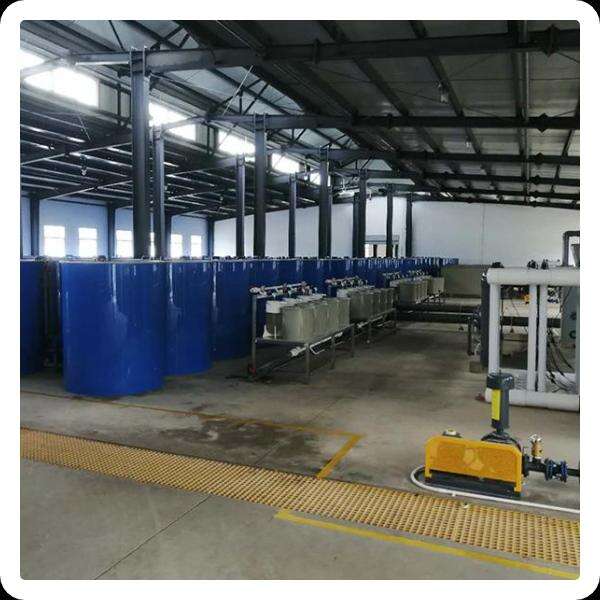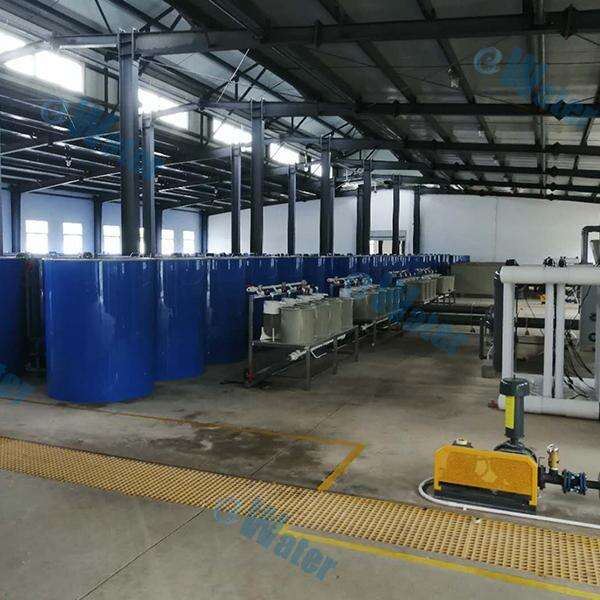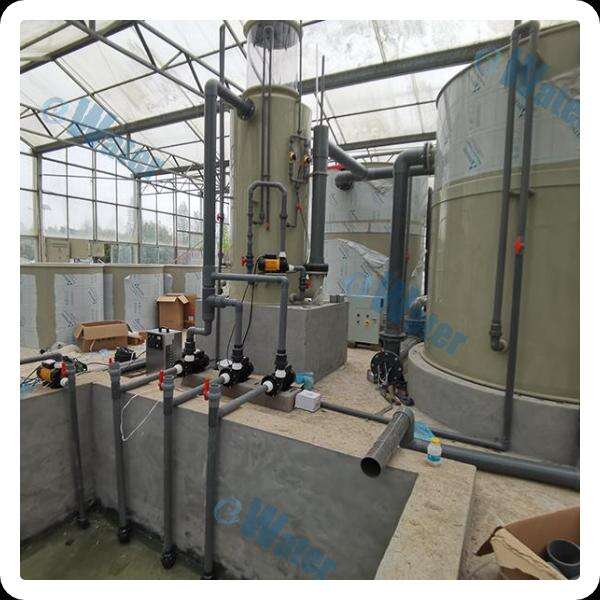بسبب زيادة الطلب على الأطعمة البحرية، يمكن أن يكون تغذية الأسماك المزاراة خيارًا جيدًا من الناحية التجارية في صناعة الأحياء المائية المتزايدة. من ناحية أخرى، للأساليب التقليدية لتربية الأسماك تأثيرات بيئية سلبية كبيرة مثل تدهور النظام البيئي والتلوث. هنا تدخل أنظمة الأحياء المائية الدائرية (RAS) - وهي إجابة أكثر استدامة لتربية الأسماك.
تُسمى هذه الأنظمة RAS (نظام الأحياء المائية الدائري)، وتعمل عن طريق إعادة تدوير ومعالجة نفس المياه بشكل مستمر في حلقة مغلقة. يمكن لهذا أن يوفر كميات هائلة من المياه بالإضافة إلى المساعدة في تقليل الملوثات التي تتدفق إلى مياهنا الملوثة بالفعل. علاوة على ذلك، تتيح أنظمة RAS السيطرة بشكل أكبر على جودة الغذاء ونوعية المياه، مما يؤدي إلى أسماك أصحّى ونمو أفضل. يمكن لهذا النوع من تربية الأسماك أن يساعد في إنقاذ محيطاتنا بينما يلبي الطلب على المنتجات البحرية، لذا دعونا نختبر ونفهم ما هو ممكن حقًا.
هناك العديد من الخطوات المهمة لبدء وتشغيل مزرعة أسماك RAS ناجحة لأي شخص يرغب في مثل هذه مشروع تربية الأحياء المائية. 1- يجب أن يكون لديك إمكانية الوصول إلى مصدر ماء نظيف وبارد وغير منقطع، مع درجة حرارة مناسبة لنوع السمكة التي تنوي تربيتها. بعد ذلك، اأخذ بعين الاعتبار حجم وموقع مزرعتك - إذا كنت تفضل أن يمكن وضع أنظمة RAS خارجياً أو داخلية حسب متطلباتك واللوائح المحلية.
الخطوة التالية، اختيار نوع السمكة المناسب! يجب أن يأخذ هذا النموذج في الاعتبار عوامل مثل معدل النمو، الطلب في السوق والاستدامة البيئية. بعد تحديد نوع السمكة، يتطلب إعداد نظام RAS مجموعة جيدة من الخزانات، المرشحات والمضخات. إعداد النظام بشكل صحيح له دور كبير في التحكم بنظم النمو لصحة الأسماك ونموها.
في التشغيل؛ مراقبة وإدارة جودة المياه هي العامل الأساسي للنجاح في تقنيات تربية الأسماك بإعادة التدوير. وهذا يتضمن إجراء اختبارات وتعديلات درجة الحموضة (pH)، ومراقبة مستويات الأمونيا والنيتريت، مع ضمان حصول الأسماك على كمية كافية من الأكسجين لتناول الطعام. وبالمثل، فإن التأكد من اتباع تدابير الأمن البيولوجي الصحيحة مهم لضمان عدم دخول الأمراض إلى مزرعتك.

إذا كنت تريد زيادة أرباحك في تربية الأسماك بنظام RAS، فإليك بعض الاستراتيجيات الرئيسية. اختيار نوع السمكة المناسب الذي سيجذب السوق المستهدف الخاص بك هو أمر أساسي تمامًا. يجب أن تُوجه اختياراتك بالعوامل مثل معدل النمو، والطلب في السوق، والاستدامة البيئية.
بالإضافة إلى ذلك، تحتاج إلى تصميم نظام RAS الخاص بك مع التركيز على الكفاءة. لزيادة كفاءة تحويل الغذاء، وتقليل استهلاك الماء واستخدام الطاقة. خفض التكاليف: بالنسبة لكل سمكة تقوم بتربيتها، فإن تقليل كمية الموارد المطلوبة لتحقيق ذلك يزيد من الأرباح.
نقطة أخرى مهمة لزيادة الإنتاجية هي التفضيل للوقاية من الأمراض. باستخدام نظام بيولوجي آمن وبرنامج فعال لإدارة الصحة، يمكنك تقليل تكرار حدوث الأمراض في قطيعك أو غنمك بحيث يتم استخدام أقل عدد من المنتجات.
أخيرًا، ابحث عن عمليات تضيف القيمة مثل المعالجة والتغليف للحصول على سعر أعلى لمنتجك وبالتالي تحقيق ربح أكبر.

على الرغم من أن الأسماك البرية وبعض الأسماك المرباة يمكن أن يكون لها تأثيرات بيئية سلبية، فإن نظام RAS يُعتبر خيارًا أكثر صداقة للبيئة. الصيد الجائر وتدمير الموائل والصيد غير المقصود هم بعض النتائج غير المرغوب فيها المرتبطة بالأسماك البرية. يمكن أن تؤدي طرق تربية الأسماك التقليدية إلى تلويث المياه وانتشار الأمراض في السكان البرية.
من ناحية أخرى، يسمح إنتاج الأسماك باستخدام نظام RAS باستخدام الموارد بكفاءة وقد يخفف من التلوث البيئي. يتم تقليل مياه الصرف الناتجة بواسطة النظام الدائري المغلق مما يعيد بدوره توفير المياه. بالإضافة إلى ذلك، يمكن تركيب أنظمة RAS في مواقع حضرية، مما يقلل من الحاجة لنقل المنتجات البحرية على مسافات طويلة.
باختصار، حتى لو لم يحل إنتاج الأسماك باستخدام نظام RAS جميع الآثار السلبية لإنتاج المنتجات البحرية، فإنه خيار أكثر استدامة مقارنة بالصيد التقليدي أو الصيد البري.

تتمتع تربية الأحياء المائية بموقع فريد للتعامل مع النمو المستمر لطلب المنتجات البحرية، ويصبح هذا القطاع مهمًا بشكل متزايد بسبب تداعياته الواضحة. غالبًا ما تم اتهام المزارع السمكية التقليدية بتسببها بأضرار بيئية كبيرة، بينما توفر أنظمة RAS بديلاً أكثر استدامة وكفاءة.
مستقبل تربية الأحياء المائية سيشمل على الأرجح أي مزيج من التكنولوجيات مثل أنظمة RAS وطرق الزراعة البديلة. باستخدام هذا النهج، يمكن تعويض الطلب العالمي على المنتجات البحرية بشكل أكبر مع تأثيرات بيئية سلبية أقل. بالإضافة إلى ذلك، ستكون التحسينات في البحث والتطوير المتعلقة بتربية وجينات أنواع الأسماك، وتطوير تقنيات العلف ومنع الأمراض شروطًا ضرورية لتحسين إنتاجية نمو تربية الأحياء المائية من خلال الكفاءة.
باختصار، تعد تقنية RAS حلاً مستدامًا لتلبية السوق المتزايد للمنتجات البحرية. يمكن لأنظمة RAS أن تعمل بكفاءة وربحية ووعي بيئي - عند تنفيذها بشكل صحيح من خلال التخطيط والتصميم والتشغيل الدقيق. ستنمو وتتطور تربية الأحياء المائية في المستقبل، ومن المتوقع أن تصبح أنظمة RAS أكثر أهمية كحل صديق للبيئة لإنتاج المنتجات البحرية.
تنتج eWater معظم معدات تربية الأسماك بنظام RAS داخليًا. تم إنشاء مرشحات الطبول الدوارة الجيل الثالث، ومصففات البروتين الجيل الثاني، وكذلك أنظمة الأكسجين الجيل الثالث في عام 2018. نقدم ضمانًا لمدة ثلاث سنوات، ونحن ملتزمون بتقديم أعلى جودة للمنتج والدعم الفني. منذ عام 2016، حصلنا على شهادات ISO/CE.
eWater تسعى باستمرار إلى استراتيجيات RAS الابتكارية لتربية الأسماك في أنظمة RAS، استهلاك الطاقة يعزز الإنتاجية. لقد نجحنا في تقديم 400 RAS عالميًا لتربية الأسماك في نظام RAS لعام 2022.
إرسال دعم إلى موقع عملاء تربية الأسماك في نظام RAS لدعم التثبيت والتأهيل على الموقع. إنشاء طبعات موجهة نحو التفاصيل لأنظمة RAS للعملاء الدوليين لضمان استعداد تصميم المبنى الأساسي وتطوير خطط عملية، بما في ذلك الجداول الزمنية والمتطلبات العمالة قبل التركيب.
eWater هي واحدة من أكبر شركات توفير حلول تربية الأحياء المائية المتخصصة في أنظمة تدوير المياه، تعمل مع العملاء لإيجاد الحل الأكثر ملاءمة لتربية الأسماك في نظام RAS.
فريق المبيعات المحترف لدينا ينتظر استشارتك.